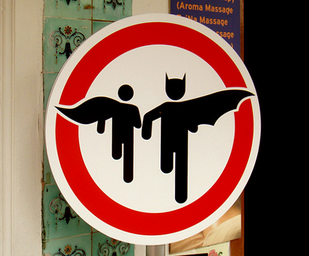
“Death is lighter than a feather, duty heavier than a mountain” Japanese proverb used in The Wheel of Time, Robert Jordan
Our definition of heroism is fucked up. Putting yourself in immediate physical danger is hard. I get that. And I am not indifferent to the fact that there are times when we might be required to fight for the things we value; for our families, our friends, and our freedoms. Or even for other people; defending one another even if doing so put ourselves in danger. These things are occasionally necessary.
But to only value that? To lionise and praise that as the pinnacle of what we might hope to achieve?
What is even more fucked up is the Help for Heroes campaign here in Britain and various similar efforts in other countries. We have ample, and growing, evidence of the scale of innocent deaths involved in the military actions in which our forces are currently engaged. Evidence of torture, degradation and atrocities being committed against nations and peoples which cannot defend themselves in any meaningful way. And this is something we are encouraged to unquestioningly support? To help?
By being exhorted to ‘help’ the ‘heroes’ we are asked to collude in the actions of those people committing them. And it is important to remember that these are people. Mostly people from working class backgrounds whose lives are valued little unless they are willing to add their flesh to the grinder of military service. We could learn much from the poetry of World War 1 about the class divides between those who order death and those that die.
| Yet by naming these Heroes, and thus valorising not only their actions but also the social circumstances which force children into a life of danger and permanently damaging ‘service’, we also send certain messages that reproduce themselves throughout our society in various ways. Messages such as: | This is the complex and ongoing struggle to make ends meet |
* Killing and dying are pathways to social status
* There are real boundaries between ‘us’ and ‘them’
* The only way to resolve our differences is through conflict and conquest
* They are less valuable than us
* Our actions are justified, theirs are not
These are the products of declaring military violence to be heroism.
Personally, fuck that.
If that is what it takes to be considered a hero, to be valued and praised by our society (but notably poorly paid – the free market, it seems, doesn’t value the lives of our poor soldiers any more than our poor workers) then I want nothing to do with it. Jack Halberstam, writing in The Queer Art of Failure makes this point by rejecting the trappings of status generation and value associated with capital and the family. They ask instead that we look at what is not valued, the roles that are looked down upon and the stories that are ignored. By applying critical theory to the likes of Fantastic Mr Fox and Lady Gaga, Halberstam calls for an appreciation for low texts, in opposition to the continued regurgitation of ‘the classics’
I want to do the same. To look for a moment at the places in our society that are ignored in the rhetoric of heroism, at our minimum wage earners – not doctors but the health care assistants who spend their days cleaning shit from your old aunties so you don’t have to, the janitors and chemical plant workers, the teachers and data processors, call centre workers, waiters and teenagers who make your coffee. All those for whom life isn’t a matter of high danger and isn’t glamorous or constantly validated in computer games, newspapers, or national moments of silence. Those who show up, everyday, to do the jobs on which we depend but would rather avoid doing ourselves.
This is struggle, not against an enemy you can fight, for it is a pervasive system and to fight against it is to rapidly find yourself imprisoned and further vilified. This is the complex and ongoing struggle to make ends meet, doing whatever is necessary to get through the month. And knowing that there will be another after that, and after that, and that the chances of it ever getting easier are vanishingly small.
These are people we don’t necessarily like. They don’t have the privileges of education, they don’t have the time to be feminists or socialists; they have to go to work. They are under siege and sometimes try to protect themselves by lashing out at immigrants, or Europe or changes that might make their lives harder. They are often the same people who join our military because it promises them status they might otherwise be unable to gain, and a wage that is slightly better than they would earn in a supermarket.
Despite this, it is there that we find true heroism. Kindness amongst hardship, communities and companionship in places described as ‘black spots’ or ‘no-go areas’. Pride, even when there is not enough to eat. Service, for life, to the institutions and machineries of our society. Pain and suffering enough to make martyrs; injuries, illness and early death to match any war.
This isn’t something we should value. It is abhorrent that people should be forced to live like this.
This is heroism, and we should do everything we can to make it fucking stop.
Glen is a critical human geographer whose research focuses on privilege and inequalities. You can learn more about his work here


 RSS Feed
RSS Feed
